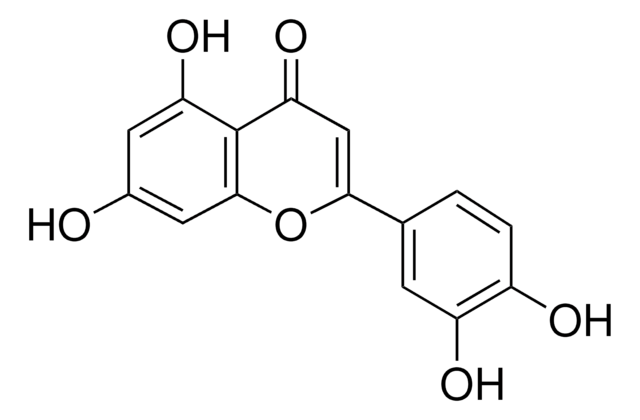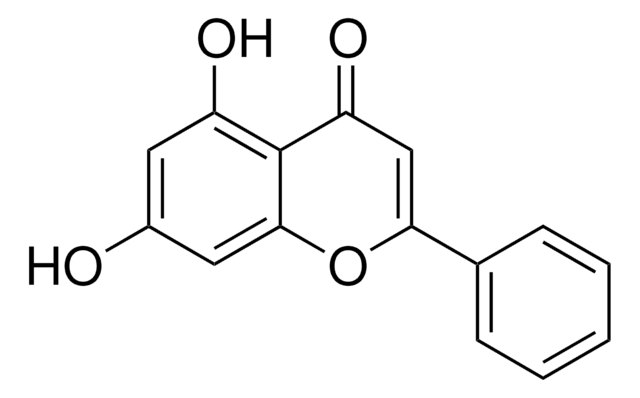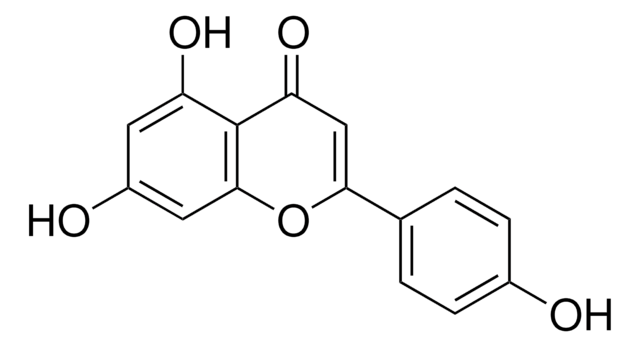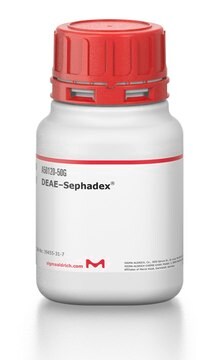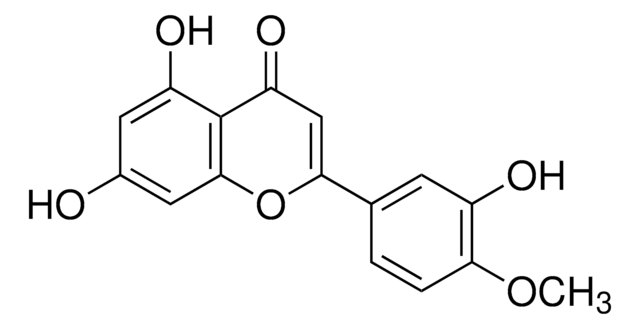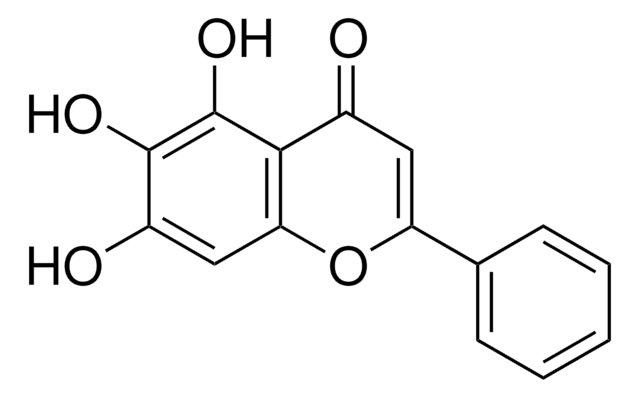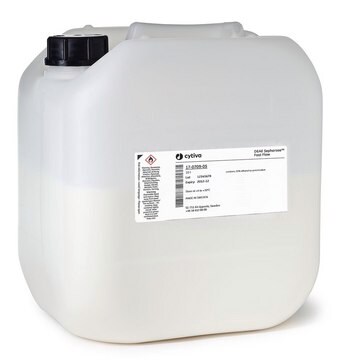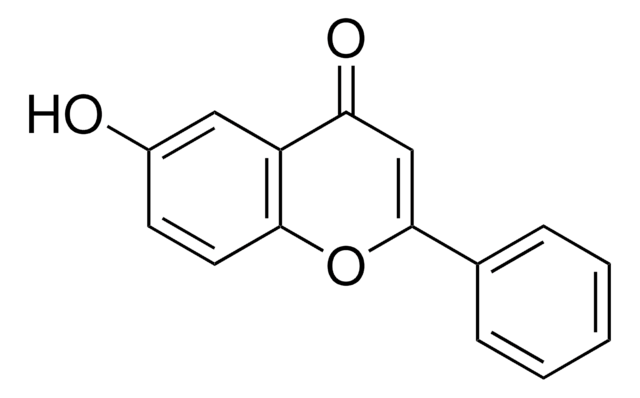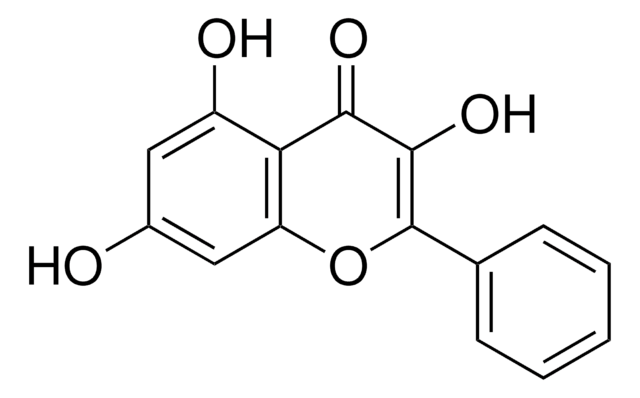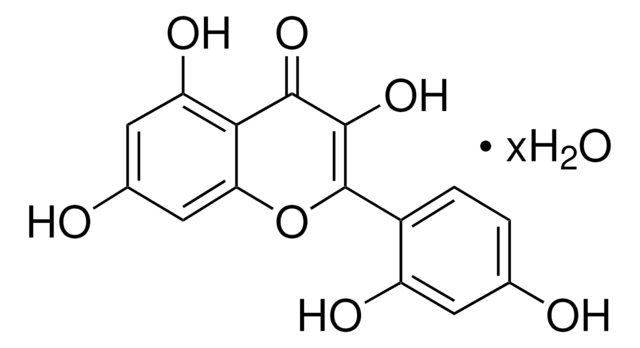C80105
Chrysin
≥96.5% purity, powder
Synonym(s):
5,7-Dihydroxyflavone
About This Item
Recommended Products
Product Name
Chrysin, ≥96.5%
Quality Level
assay
≥96.5%
form
powder
color
beige
mp
284-286 °C (lit.)
solubility
0.1 M NaOH: 0.008 g/L
λmax
348 nm
application(s)
diagnostic assay manufacturing
hematology
histology
storage temp.
room temp
SMILES string
Oc1cc(O)c2C(=O)C=C(Oc2c1)c3ccccc3
InChI
1S/C15H10O4/c16-10-6-11(17)15-12(18)8-13(19-14(15)7-10)9-4-2-1-3-5-9/h1-8,16-17H
InChI key
RTIXKCRFFJGDFG-UHFFFAOYSA-N
Gene Information
human ... CDC2(983) , CDK5(1020) , CDK6(1021) , CYP19A1(1588) , CYP1A2(1544) , GSK3A(2931)
mouse ... Hexa(15211) , Ptgs2(19225)
rat ... Gabra2(29706)
Looking for similar products? Visit Product Comparison Guide
Application
- Chrysin has been used to study the effect of bioflavonoids on the inhibition of ATP synthase in Escherichia coli.
- It has been used to study the effect of Chrysin on eIF4E (eukaryotic translation initiation factor 4E) expression in AGS cell (human gastric carcinoma cell) line.
- It has been used to study the effect of chrysin on human ovarian cancer cells.
Biochem/physiol Actions
Storage Class
11 - Combustible Solids
wgk_germany
WGK 3
flash_point_f
Not applicable
flash_point_c
Not applicable
ppe
Eyeshields, Gloves, type N95 (US)
Choose from one of the most recent versions:
Already Own This Product?
Find documentation for the products that you have recently purchased in the Document Library.
Customers Also Viewed
Articles
Antioxidants protect biological systems from oxidative damage produced by oxygen-containing free radicals and from redoxactive transition metal ions such as iron, copper, and cadmium.
Our team of scientists has experience in all areas of research including Life Science, Material Science, Chemical Synthesis, Chromatography, Analytical and many others.
Contact Technical Service
